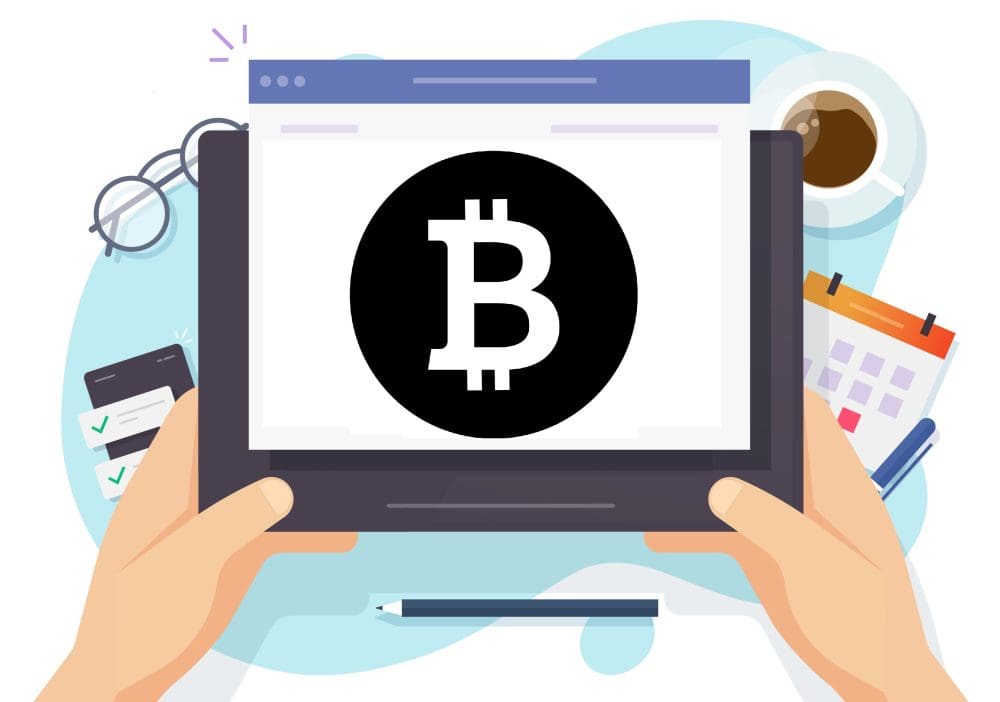Instagram users in Jamaica and across the world may have stumbled across several Instagram accounts flaunting huge profits from cryptocurrency within the last few months. “My old account was hacked, please report and block” – is a post made by a number of Instagram users who got swept into the idea of thinking they struck gold through Bitcoin mining scams.
The security of your accounts on social media is always a concern when you post any form of personal information. But a new generation of scammers is emerging, using a particularly devious combination of social engineering, cryptocurrency, and old-fashioned blackmail. The scam is becoming more common on Instagram, where popular account holders are targeted and forced to assist in swindling their followers with fake videos. With this new scheme of tricks, a few things are important when setting up and maintaining your social media accounts – two-factor
authentication and using strong passwords.
But how does this scam work? There are a few variations in each individual’s story, but it essentially boils down to three steps. According to online users, first, a malefactor gets ahold of an Instagram user’s account information, either via sending a phishing link with a fake login page or by finding a reused password from one of the near-constant security breaches already available. The thief then contacts the account holder and invites them to record a video of themselves, recommending that their followers invest money with “a friend.” The video claims that you can quickly triple your investment via Bitcoin or other get-rich-quick schemes. The criminal promises to return control of the account to its rightful owner upon completion. The victim posts the coerced video with a payment link. Their followers are swindled out of huge sums of money via cryptocurrency, purchases, or simple money transfers. The criminal disappears, generally without returning the Instagram account.
This is not the regular ‘hack an Instagram account’ plan. It goes way deeper and has cost many users thousands of dollars. One of the most recent attacks in Jamaica included an owner of a Dental Office who is also a social media personality. According to her, a trusted friend messaged her on Instagram requesting assistance with her account. With the business owner being unaware that her friend was hacked, she proceeded to assist her friend, resulting in the hackers getting control of her account and changing the password and email address. With over 100k followers on her now hacked account, she had to post on her business page, which hosts over 11k followers, to inform them that her personal account had been hacked and that they should refrain from communicating with her on her personal page. However, that was a little too late as individuals that followed her hacked account were already scammed out of money by the hackers behind that page, who told her over 100k followers to invest, and some of them did.
The business owner then had to retain a lawyer as these individuals were contacting her business, stating that she scammed them. A report was made to the police and the cyber-crime unit in Jamaica. She was instructed to disseminate an official letter stating that she is legally no longer the holder of the now hacked account. After communications with Instagram, the police in Jamaica and the business owner – the account with her 100,000+ followers was secured and given back to her by Instagram. she was then instructed to set up two-factor authentication to keep the account secured. An official video of her was then posted by her to her reclaimed account, detailing the incident from the beginning to her being given back the account by Instagram. It was essential to prove her identity to Instagram in order to gain access. Therefore her official Jamaican ID had to be sent to verify her identity and association with the account.
The results of this scenario emphasises the importance of two-factor authentication (2FA) on social media and is also a reminder to use strong passwords. Two-factor authentication, sometimes referred to as two-step verification or dual-factor authentication, is a security process in which users provide two different authentication factors to verify themselves. On Instagram, this can be set up by tapping your profile picture in the bottom right to go to your profile. After which you should tap the three lines in the top right, then tap settings. From there you go to security, then tap Two-Factor Authentication to get started. Choose the security method you want to add and follow the on-screen instructions. When you set up 2FA on Instagram, you’ll be asked to choose one of two security methods. This is either login codes from a third party authentication app such as Duo Mobile or Google Authenticator, or Text message (SMS) codes from your mobile phone. You will need to have at least one of these set up in order to use 2FA. After you’ve turned on 2FA, you’ll be able to see login requests, remove trusted devices and access backup codes for your account if you have issues receiving a recovery code.
Is this absolutely necessary? Yes, once this is set up it adds only one extra step to logging into your account from a new device or browser. It’s always worth doing, and failing to do so can often leave you open to privacy nightmares such as the Bitcoin scam. After setting up 2FA, simply be on guard for any phishing attempts using personal information in an attempt to gain your trust.
 Jody- Ann Thompson is a qualified writer and digital media specialist from Kingston Jamaica. She currently works at the Jamaica Observer in Kingston where she focuses mainly on writing and designing. Thompson holds a Bachelor of Arts degree in Journalism from the Ken Gordon School of Journalism and Communication Studies in Trinidad and Tobago. As a professional she has worked in the areas of marketing, media and public relations both in Jamaica and Trinidad. In addition to the experience garnered in communication, she has worked closely with youths at risk and those from underprivileged backgrounds. Youth empowerment and development has been a large part of her career for the past eight years, and since 2012 she has collaborated with various nonprofit organizations to empower the youth in her community and across Jamaica.
Jody- Ann Thompson is a qualified writer and digital media specialist from Kingston Jamaica. She currently works at the Jamaica Observer in Kingston where she focuses mainly on writing and designing. Thompson holds a Bachelor of Arts degree in Journalism from the Ken Gordon School of Journalism and Communication Studies in Trinidad and Tobago. As a professional she has worked in the areas of marketing, media and public relations both in Jamaica and Trinidad. In addition to the experience garnered in communication, she has worked closely with youths at risk and those from underprivileged backgrounds. Youth empowerment and development has been a large part of her career for the past eight years, and since 2012 she has collaborated with various nonprofit organizations to empower the youth in her community and across Jamaica.

